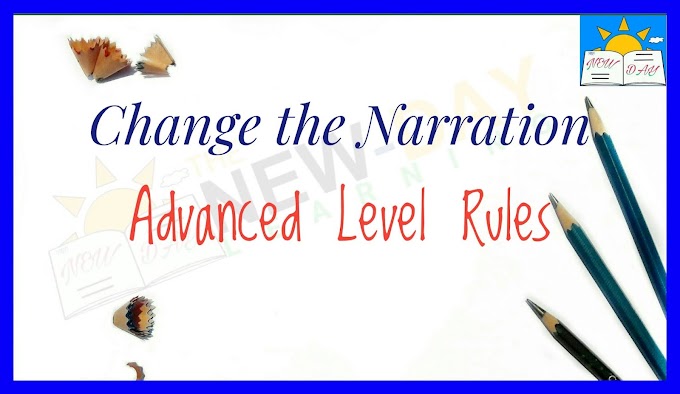Have Verb
The word Have has more than one meaning, one is to possess something, which we are going to discuss.
Okay, let's go...
So, how many types of Have verbs are in English grammar...???
Have verbs are of three kinds -
i) have, ii) has and iii) had. These verbs are used according to subjects they follow and the tense of the sentence they are in.
i) Where to use Have:-
Have comes after-
a) any subject except third person singular subject.
Like,
I have a cat.
you have a car.
we have.
they have.
[Here, the subjects I, we, you, they are not third person singular number. So, they are followed by the verb have]
Negative-
In the case of a negative sentence, we have to use a do not or don't before have.
For example, if want to make
I have a cat a negative sentence, we have to say I don't have a cat.
Similarly, we can say-
you don't have a car.
we do not have...
they do not have...
Etc.
I think it is clear upto here. So, let's move to the next one...
ii) Where to use Has:-
Has comes after the subject which is third person singular number.
Like,
He has a toy.
she has long hair.
Steve has two motorbikes.
Ratul has a brother.
Rahul’s brother has a puppy.
[Here, the subjects He, she, Steve, Ratul, Rahul's brother are to third person singular number. So, they are followed by the verb have.
But, for the negative sentences we use does not or doesn't before has have
[ but in this case the has becomes have, because have is the main form and it remains unchanged when the helping verb does is in the same sentence.]
Take a look at these examples -
Affirmative Examples Negative Examples He has a toy He does not have a toy She has long hair She does not have a long hair. Steve has two motorbikes. Steve does not have two motorbikes. Ratul has a brother. Ratul does not have a brother. Rahul’s brother has a puppy. Rahul's brother does not have a puppy. Bimal has mobiles. Bimal does not have mobiles.
iii) Where to use Had:-
Had is the past form of both have and has. We can use had after any type of subject.
Like,
I had a dictionary.
We had.
You had.
He/she had pencils.
They had.
Tomal had.
Etc.
To make a negative sentence, a did not or didn't is put before have.
Examples:
Affirmative Examples Negative Examples
He had a toy
He did not have a toy
She had long hair
She did not have a long hair.
Steve had two motorbikes.
Steve did not have two motorbikes.
Ratul had a brother.
Ratul did not have a brother.
Rahul’s brother had a puppy.
Rahul's brother did not have a puppy.
Bimal had mobiles.
Bimal did not have mobiles.
::Bengali::
Have -এর অর্থ হল আছে। এই Have verb এর তিনটি রূপ -- Have, has ও had. এই তিনটে রূপের ব্যবহার subject ও tense অনুযায়ী আলাদা আলাদা হয়।
ঠিক আছে, দেখে নেওয়া যাক কাকে কোথায় ব্যবহার করা হয়।
Examples:
| Affirmative Examples | Negative Examples |
|---|---|
He had a toy
|
He did not have a toy
|
She had long hair
|
She did not have a long hair.
|
Steve had two motorbikes.
|
Steve did not have two motorbikes.
|
Ratul had a brother.
|
Ratul did not have a brother.
|
Rahul’s brother had a puppy.
|
Rahul's brother did not have a puppy.
|
Bimal had mobiles.
|
Bimal did not have mobiles.
|
ঠিক আছে, দেখে নেওয়া যাক কাকে কোথায় ব্যবহার করা হয়।
Have (আছে):-
Third person singular subject ছাড়া বাকি সব subject এর পরে have ব্যবহৃত হয়।
Like,
I have a cat.(আমার একটি বিড়াল আছে),
you have a car. (তোমার/তোমাদের একটি গাড়ি আছে),
we have (আমাদের আছে),
they have (তাদের আছে).
Negative sentence তৈরী করার ক্ষেত্রে have-এর আগে do not বা don't বসাতে হয়।
অর্থাৎ, have মানে আছে আর do not have মানে নেই।
যেমন,
I have books (আমার একটি বই আছে।) -এর negative example হল I do not have any book (আমার কোনো বই নেই।)
এরপর has
Third person singular subject ছাড়া বাকি সব subject এর পরে have ব্যবহৃত হয়।
Like,
I have a cat.(আমার একটি বিড়াল আছে),
you have a car. (তোমার/তোমাদের একটি গাড়ি আছে),
we have (আমাদের আছে),
they have (তাদের আছে).
Negative sentence তৈরী করার ক্ষেত্রে have-এর আগে do not বা don't বসাতে হয়।
অর্থাৎ, have মানে আছে আর do not have মানে নেই।
যেমন,
I have books (আমার একটি বই আছে।) -এর negative example হল I do not have any book (আমার কোনো বই নেই।)
এরপর has
Has (আছে):-
Third person singular subject এর পর ‘আছে’ বোঝাতে has ব্যবহৃত হয়।]Like,
He has (তার আছে),
She has (তার আছে), Steve has (স্টিভের আছে),
Ratul has a brother. (রাতুলের এক ভাই আছে),
Rahul’s brother has a puppy (রাহুলের ভাইয়ের একটি কুকুর ছানা আছে).
Negative sentence তৈরী করার ক্ষেত্রে has-এর পরিবর্তে have ব্যবহার করা হয়। কারণ, যেহেতু subject হল third person singular number, তাই আগেই helping verb do-কে does করা হয়েছে। Have হচ্ছে Have Verb -এর main form আর কোনো sentence এ helping verb থাকলে verb এর main form-এর কোনো পরিবর্তন হয় না।
অর্থাৎ,
Has মানে আছে আর does not have মানে নেই।
| Affirmative Examples | Negative Examples |
|---|---|
| He has a toy ( তার একটি খেলনা আছে।) | He does not have a toy. ( তার খেলনা নেই।) |
| She has long hair. (তার লম্বা চুল আছ।) | She does not have a long hair.(তার লম্বা চুল নেই।) |
| John has two motorbikes. ((জনের দুটো মোটরসাইকেল নেই।) | John does not have two motorbikes. (জনের দুটো মোটরসাইকেল নেই।) |
| Ratul has a brother. (রাতুলের এক ভাই আছে।) | Ratul does not have a brother. (রাতুলর ভাই নেই।) |
এবার had...
Had (ছিল):-
Has ও have-এর past form হল had. Had verb টি যেকোনো subject এর পরে বসতে পারে।Like,
I had (আমার ছিল),
We had (আমাদের ছিল),
You had (তোমার/ তোমাদের ছিল),
He/she had pencils. (তার পেন্সিল ছিল),
They had (তাদের ছিল),
Tomal had (তমালের ছিল।)
Etc.
Negative sentence এর ক্ষেত্রে had -কে তুলে দিয়ে সেই জায়গায় did not have লিখতে হয়।
তাহলে আমাদের মনে রাখতে হবে যে-
Had=ছিল।
Did not have= ছিল না।
নীচের উদাহরণগুলি থেকে ভালোভাবে বুঝে নেওয়া যাক...
| Affirmative Examples | Negative Examples |
|---|---|
| He had a toy. (তার একটি খেলনা ছিল।) | He did not have a toy. (তার খেলনা ছিল না।) |
| She had long hair (তার লম্বা চুল ছিল।) | She did not have a long hair. (তার লম্বা চুল ছিল না।) |
| Bijoy had books. (বিজয়ের বই ছিল।) | Bijoy did not have books. ( বিজয়ের বই ছিল না।) |
| Ratul had a brother. (রাতুলের এক ভাই ছিল।) | Ratul did not have a brother. (রাতুলের ভাই ছিল না।) |
::Exercises::
1) Abdul ______ (have/has) a cycle.
2) Yesteray we______ (have/has/had) home tasks.
3) The girl ______ (have/has) many frocks.
4) You ______ (have/has) a beautiful garden.
5) Joy and bijoy ______ (have/has) a sister.
6) She or her brother ______ (have/has) many toys.
ধন্যবাদ...
Hope you like this lesson. If you find any problem regarding this, please comment bellow.
Thank you...





%20(1).webp)


%20(1).webp)
0 Comments
Leave a comment